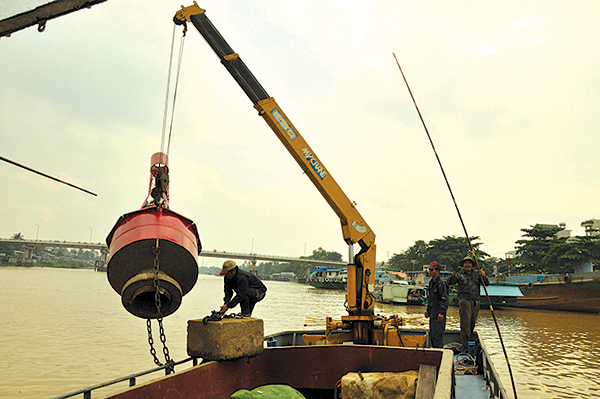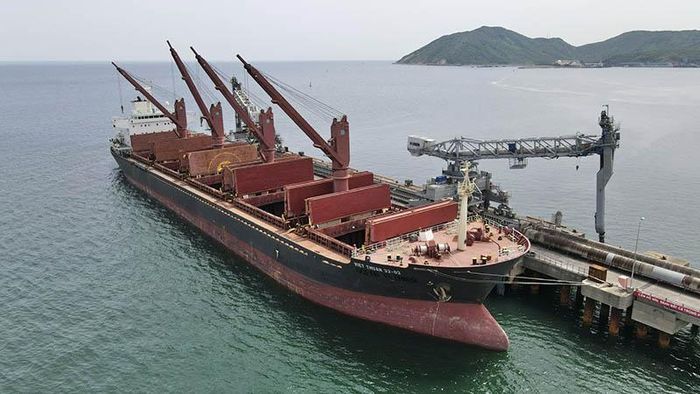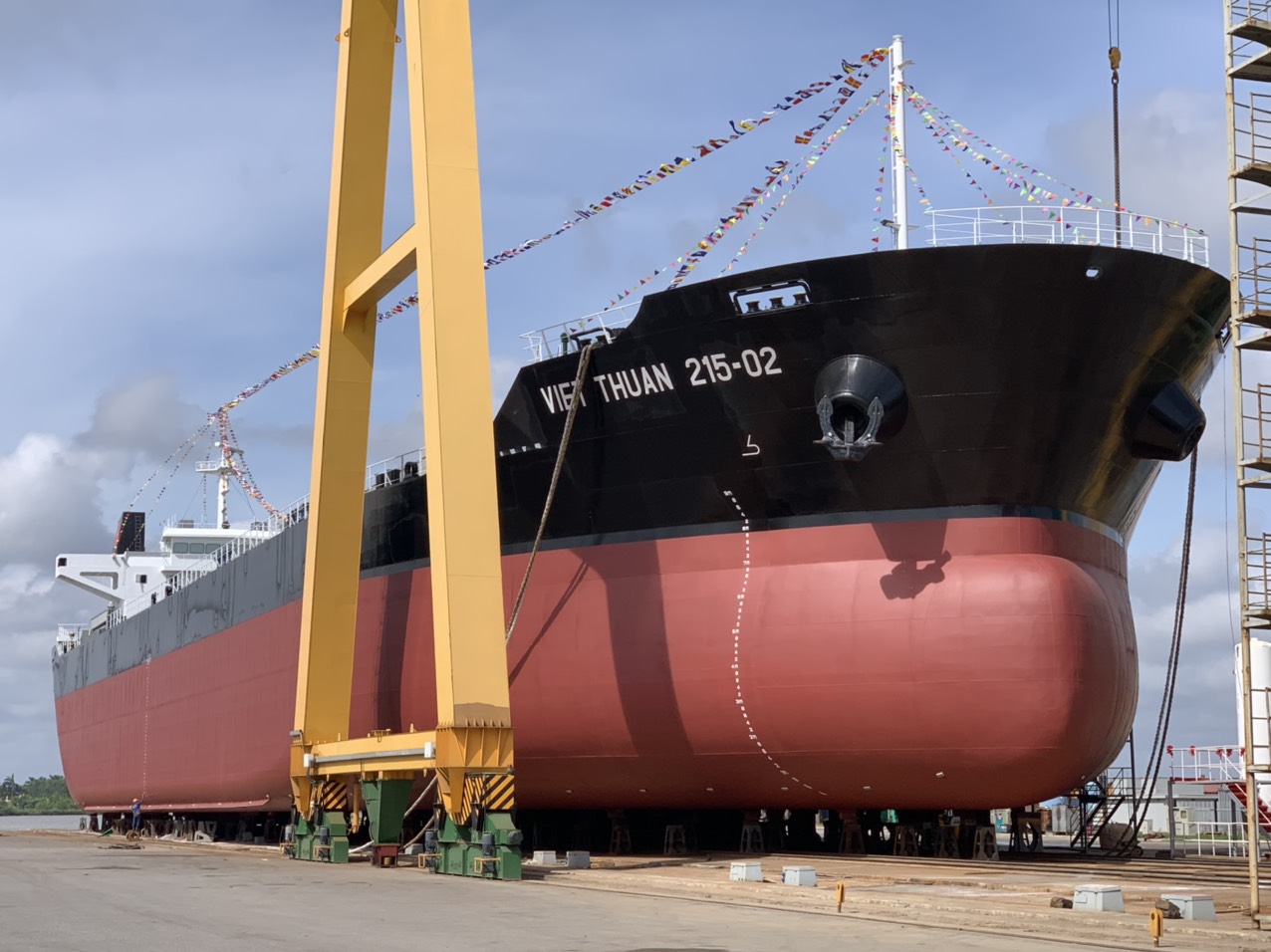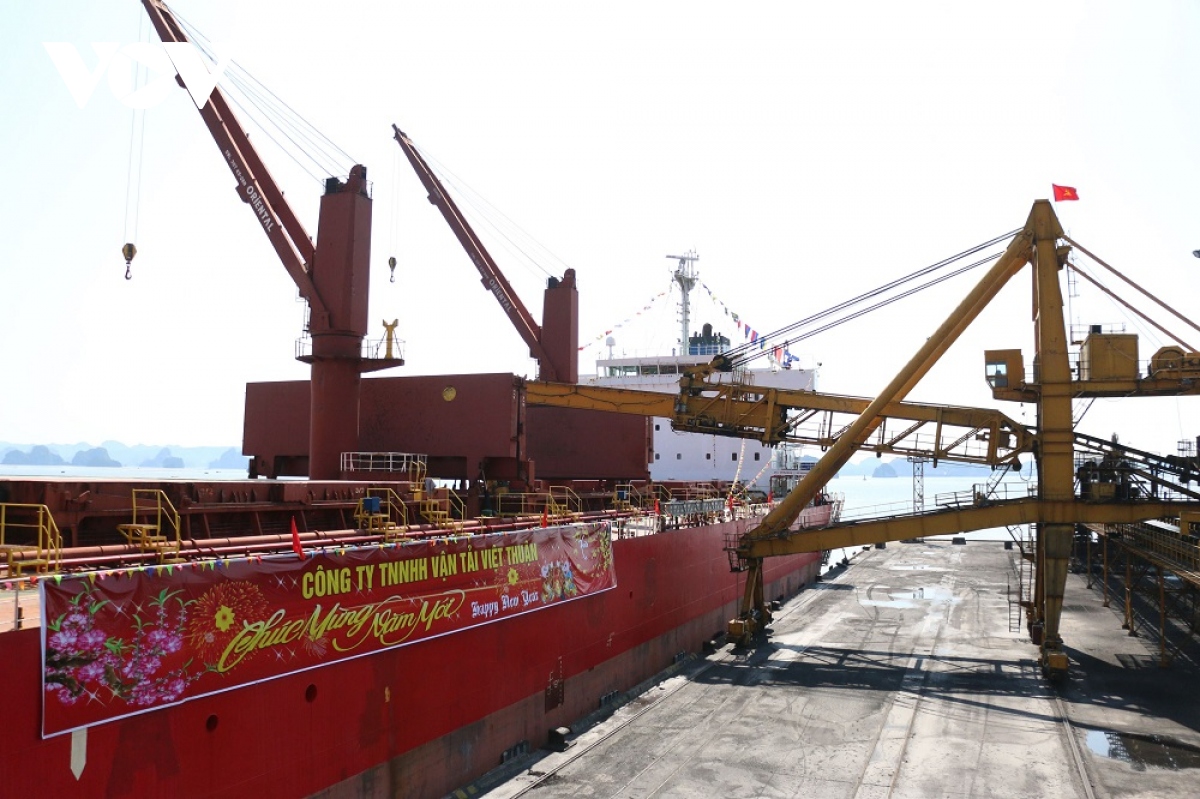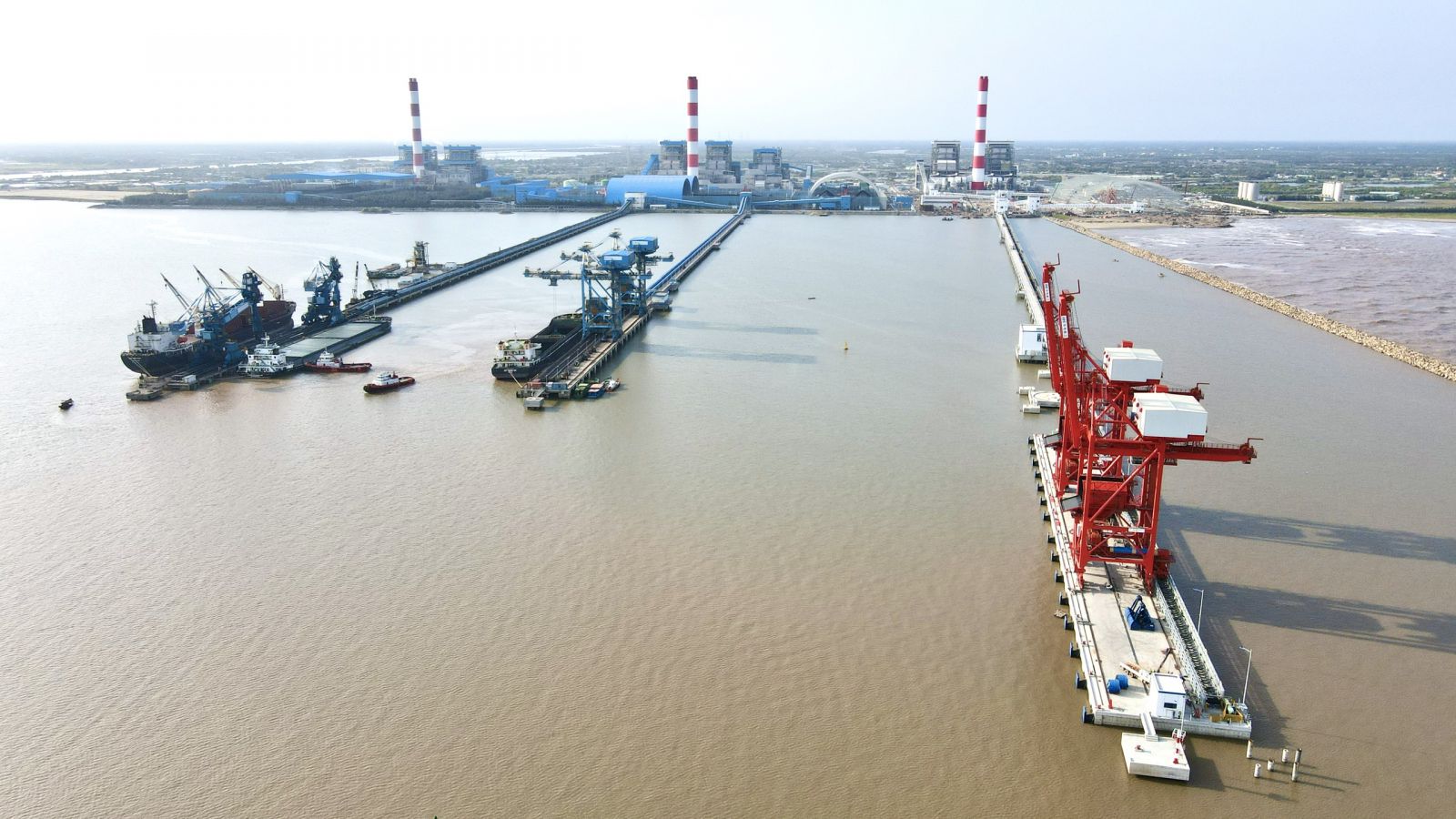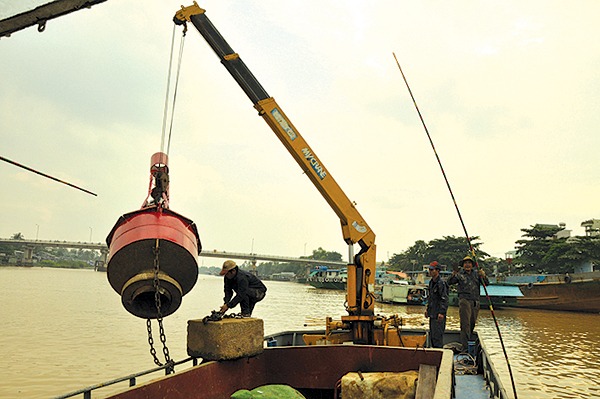
Waterway maintenance – Photo: Tạ Tôn.
Concerns Over Short Bidding Periods for Waterway Maintenance
Waterway businesses are eager for a resolution to the current bidding mechanisms and are seeking longer-term contracts to benefit both the awarded companies and regulatory agencies.
Mr. Duong Hai Thanh, Chairman of the Board of Directors of the Inland Waterway Maintenance Management Company No. 4, stated that they are urgently preparing documentation to bid for the regular maintenance packages for national waterways in 2018. Previously, in April 2017, his company and several others were busy bidding on maintenance packages organized by the Vietnam Inland Waterway Administration, with contracts only valid until the end of December 2017.
The eight-month bidding period has been challenging, causing significant stress for companies preparing their bids. “We spend considerable time and effort preparing the bidding documents, negotiating contracts, and processing payments. However, the contract duration is too short; right after finishing one bid, we must prepare for the next,” Mr. Thanh said.
Leaders from Waterway Management Companies No. 3 and No. 6 echoed this sentiment, stating that an eight-month bidding period is inadequate, despite the nature of the work remaining stable. Beyond the eight-month bidding timeframe, for the remaining four months of the year, these companies must also fulfill orders from the Vietnam Inland Waterway Administration.
According to the Vietnam Inland Waterway Administration, since 2016, the waterway sector has piloted bidding for the management and regular maintenance of 45 national inland waterways. This bidding approach has reportedly reduced costs by 3-5% (about 3.9 billion VND) per package compared to traditional ordering methods. In the first year, only orders were placed, and bidding was conducted for an eight-month duration. However, as of 2017, the timeframe had not been extended.
Mr. Vu Manh Hung, Acting Head of the Planning and Investment Department (Vietnam Inland Waterway Administration), explained that a bidding plan must be approved before the process can begin, which includes determining the number of bidders, package prices, funding sources, bidding methods, and contract durations. The complication arises because the budget estimates for maintenance management are only allocated by late November or December of the preceding year, leaving insufficient time to organize the bidding process and implement contracts starting January 1 of the following year.
He further noted that regular maintenance cannot be neglected during periods when contracts are not in effect, hence the need for eight-month bids, while the remaining four months are filled with orders.
The Case for Longer Bidding Periods
In interviews with Giao Thông newspaper, leaders from waterway maintenance companies unanimously agreed that the eight-month contract periods are too short and should be extended to a minimum of three years. The road maintenance sector has successfully implemented three-year bidding periods, with potential extensions to five years, which would reduce paperwork and allow companies to invest more in maintenance equipment.
“After privatization, waterway maintenance companies are forced to expand their operations into other sectors due to a lack of work. A bidding period of 2-3 years would provide stability, enabling companies to invest in maintenance equipment,” Mr. Duong Hai Thanh stated.
Mr. Pham Van Pha, Director of Waterway Management Company No. 3, also shared that the revenue from regular waterway maintenance does not constitute a significant portion of company income. However, since maintenance remains a traditional field, longer bidding periods would stabilize companies and enable them to diversify into other areas.
In response, Mr. Vu Manh Hung indicated that starting in 2018, there might be a move towards applying bidding for maintenance throughout the entire year. Nonetheless, the Vietnam Inland Waterway Administration is considering proposals for organizing multi-year bidding periods to facilitate operations for both companies and regulatory bodies.
“The Administration has submitted a draft to the Ministry of Transport to amend and supplement certain inconsistencies in Circular 26 dated July 8, 2014, which guides the bidding and ordering of public utility services for managing and maintaining national inland waterways within the central budget estimates. Simultaneously, we are developing a mid-term budget plan to propose multi-year bidding for maintenance,” Mr. Hung concluded.
Huy Loc









